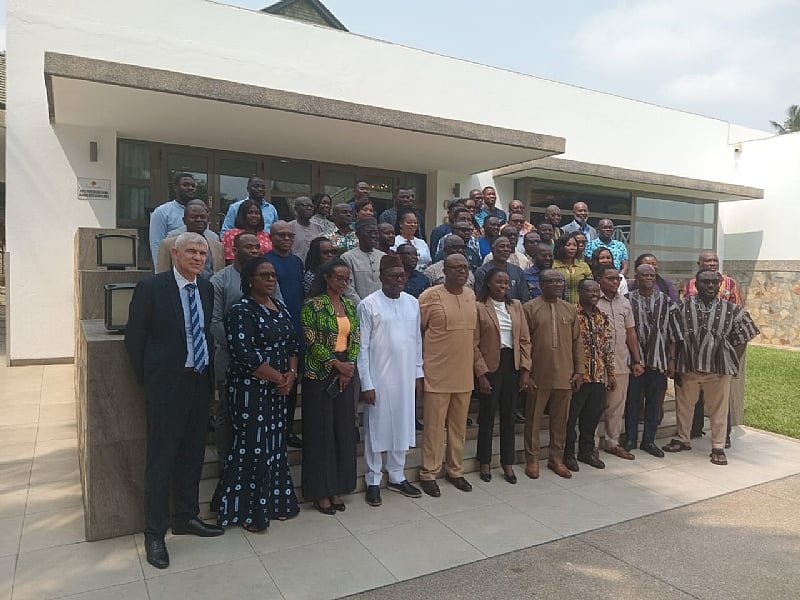A collaborative workshop spearheaded by the United Nations Economic Commission for Africa (ECA), the ECOWAS Commission, and other UN agencies, under the supervision of Ghana’s National Development Planning Commission (NDPC), recently concluded in Accra, Ghana. The workshop’s core objective was to bolster the capacity of ECOWAS member states in developing robust regional agricultural value chains. This initiative aims to enhance diversification within the agricultural sector and stimulate intra-African trade, aligning with the broader goals of the African Continental Free Trade Area (AfCFTA). The workshop focused on presenting a methodology for analyzing potential cross-border value chain products, particularly in Côte d’Ivoire and Ghana, laying the groundwork for selecting key crops and charting a collaborative path forward.
Central to the workshop’s discussions was the importance of looking beyond national borders in terms of processing, trade, and value addition. Dr. Joan Kagwanja of the ECA emphasized the need for self-sufficiency and achieving economies of scale through regional collaboration. She highlighted the significance of the AfCFTA, describing it as the world’s largest free trade area within the WTO framework, and positioned agriculture as a critical entry point for accelerating continental integration. Existing guidelines for developing regional agricultural value chains, established in 2019, provide a framework for member states to reform policies, strategies, and programs to promote sustainable agricultural development across the region. These guidelines aim to empower policymakers and Regional Economic Communities (RECs) with the necessary tools to foster viable and sustainable agricultural practices through regional value chains.
The workshop also explored the integration of the project within the Common African Agro-Parks (CAAPs) program, adopted by the African Union in 2019. Kabore Lassane, Director of Industry at the ECOWAS Commission, explained that CAAPs aims to create regional agro-industrial hubs, boosting the supply of locally produced and processed food and goods. This initiative underscores the need for agribusiness to adapt to more efficient value chains, expand industrial capacity, and diversify product offerings, ultimately generating employment opportunities for Africa’s youth. Representatives from various Ghanaian ministries echoed their commitment to the project’s success, highlighting the need to move beyond simply measuring agricultural success by production volume and to incorporate post-harvest factors and other stakeholders in the value chain.
The workshop highlighted the potential to expand beyond cocoa and focus on other commodities, ensuring consumption from farm to table. This comprehensive approach aims to create employment opportunities within the sub-region by capitalizing on the entire value chain. Discussions emphasized the importance of connecting farmers with essential resources such as equipment, technology, finance, and inputs, and integrating agricultural producers in Ghana and Côte d’Ivoire for seamless transportation of goods across the continent. The NDPC emphasized the workshop’s role as a valuable stepping stone towards a new development plan slated for 2026.
The project’s current phase focuses on assessing cross-border value chains for strategic commodities, including cocoa, and examining existing policy and regulatory frameworks. The Ministry of Food and Agriculture expressed full support for the project, emphasizing the importance of incorporating all actors within the value chain to stimulate growth and efficiency. This marks a shift from previous approaches that solely focused on production volume, recognizing the importance of a more holistic view of agricultural success.
Building upon the experience gained from supporting the development of the first envisaged common agro-industrial park (CAIP) between Zambia and Zimbabwe, ECA aims to establish a comprehensive capacity-building project. This project, operating within the CAAPs program, will support Côte d’Ivoire and Ghana in developing a common agro-industrial park. The ultimate goal is to demonstrate the transformative potential of common agro-poles for both countries and to foster institutional and policy innovation at national and regional levels. The workshop fostered a dynamic exchange of ideas and expertise among participants, including representatives from various Ghanaian governmental bodies, cocoa and coffee boards, universities, private sector organizations, NGOs, CSOs, and international organizations like IFAD and FAO. This diverse representation reflected a shared commitment to strengthening regional agricultural value chains and driving sustainable development in Africa.


